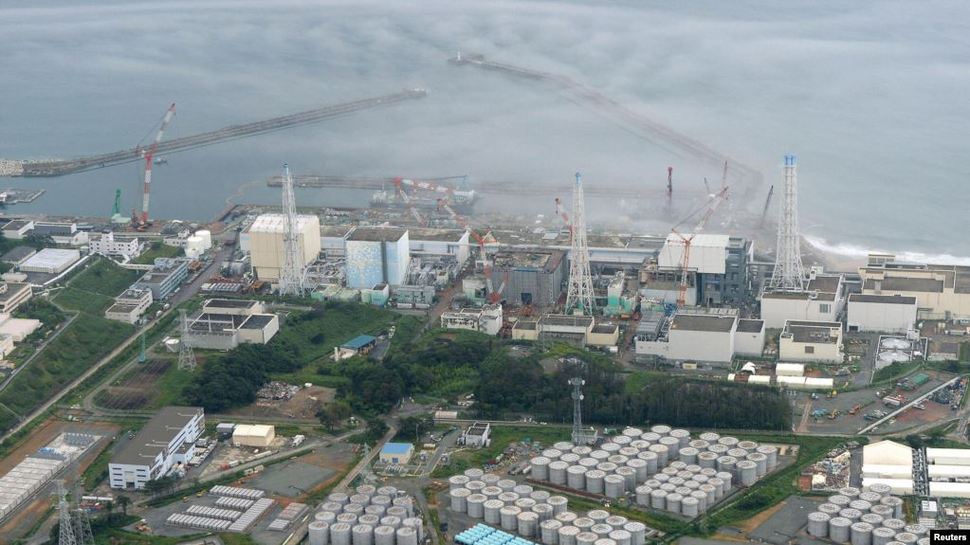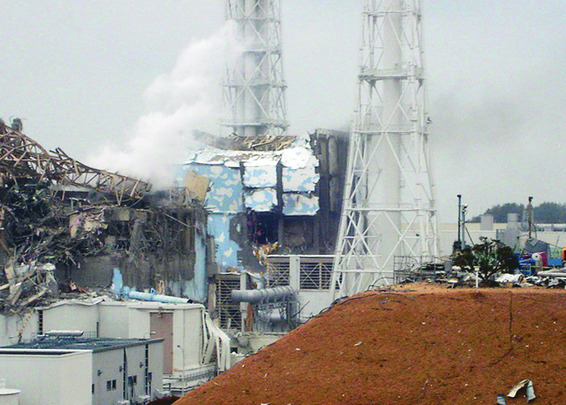Posted on : Aug.20,2019 16:51 KST
Modified on : Aug.20,2019 17:14 KST
 |
|
Storage tanks for contaminated water from the Fukushima Daiichi Nuclear Power Plant
|
On Aug. 19, the South Korean government called in the economic minister at the Japanese Embassy to Seoul and delivered a note, referred to as a “note verbale” in diplomatic circles, expressing its position on the question of dumping contaminated water from the Fukushima nuclear reactor into the ocean. The note requests confirmation of claims made by the press and environmental groups that Japan plans to dump radioactive water presently stored at the reactor into the ocean and asks for Japan’s official position on future plans pertaining to the disposal of the contaminated water.
Japan needs to recognize that releasing this radioactive water could have a very serious effect on the maritime ecosystem in the area, as well as on the health and safety of both Japanese and South Koreans, and it needs to disclose all related information with transparency.
According to officials at South Korea’s Ministry of Foreign Affairs (MOFA), Japan has explained that it hasn’t decided on a disposal plan for the contaminated water at the Fukushima plant and that various options are under review. Japan also said it’s making efforts to decrease the amount of water being contaminated and increase the capacity of the plant’s storage tanks and promised to keep the international community informed of its position.
 |
|
An image of the Fukushima nuclear disaster in March 2011. (AFP/Yonhap News)
|
But such explanations are insufficient to fully dispel our suspicions considering that Toyoshi Fuketa, chief of Japan’s Nuclear Regulation Authority, hinted last October that he would approve a plan to dump contaminated water from Fukushima into the ocean once it has been diluted. On top of that, environmental group Greenpeace revealed in a January report that Japan is working on a plan to dump 1 million tons of contaminated water into the Pacific Ocean.
Dumping the contaminated water would be sure to have a major environmental impact on South Korea, given its geographical proximity. According to one report, currents in the Pacific Ocean would bring contaminated water to the east coast of Korea within the space of a year. Tokyo needs to set up a deliberative body to discuss this matter in detail, and in depth, with Seoul.
Admittedly, some suspect the South Korean government of trying to use this issue to put pressure on Japan in the two countries’ ongoing trade dispute. But since this matter is directly linked to public health and safety, it goes without saying that it must be handled strictly, without concern for the political situation between the two countries. We urge the Japanese government to engage in close deliberations and to share information transparently so as to assuage its neighbors’ concerns.
Please direct comments or questions to [english@hani.co.kr]
Caption: An image of the Fukushima nuclear disaster in March 2011. (AFP/Yonhap News)








